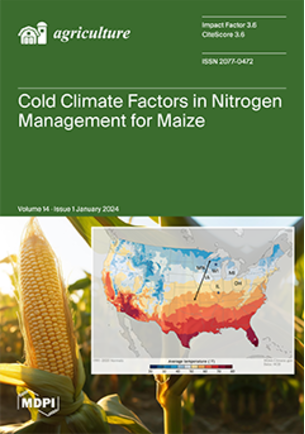Effect of Magnetic Field and UV-C Radiation on Postharvest Fruit Properties
Q2 Agricultural and Biological Sciences
引用次数: 0
Abstract
This review focuses on the recent information on the effect of different types of magnetic fields (MFs) and ultraviolet radiation (UV-C) on the processes that may finally affect fruit quality and its storage potential. Firstly, the biological effect of MFs on every plant’s growth and development level is described. The magnetic field interacts with a plant’s metabolism and changes the permeability of membranes affecting cells’ homeostasis. It also could affect early seedling development, stimulating enzyme activity and protein synthesis, and later on nutrient and water uptake of adult plants. In some cases, it makes plants more resilient, increasing their tolerance to environmental stresses. Also, MF treatment could lower the disease index of plants, thus improving the internal and external fruit quality indices. The second part of this review focuses on interesting perspectives of using UV-C radiation to reduce postharvest fruit diseases, but also to delay fruit ripening and senescence. The application of UV-C light to combat postharvest infections is associated with two mechanisms of action, such as direct elimination of microorganisms located on the fruit surface and indirect triggering of the plant’s defense reaction. Moreover, the use of hormetic doses of UV-C can additionally increase the nutritional properties of fresh fruit, lead to the accumulation of desired phytochemicals such as polyphenols, for example, to increase anthocyanin or resveratrol content, or elevate antioxidant activity.磁场和紫外线辐射对采后水果特性的影响
本综述侧重于不同类型的磁场(MFs)和紫外线辐射(UV-C)对可能最终影响水果质量及其贮藏潜力的过程所产生影响的最新信息。首先,介绍了磁场对每种植物生长和发育水平的生物效应。磁场与植物的新陈代谢相互作用,改变细胞膜的通透性,影响细胞的平衡。磁场还能影响幼苗的早期发育,刺激酶的活性和蛋白质的合成,并影响成年植物对养分和水分的吸收。在某些情况下,它还能增强植物的抗逆性,提高它们对环境压力的耐受力。此外,中频处理还能降低植株的病害指数,从而改善果实的内部和外部质量指标。本综述的第二部分重点探讨了利用紫外线-C 辐射减少采后水果病害以及延缓水果成熟和衰老的有趣前景。应用紫外线-C 光防治采后感染有两种作用机制,如直接消灭果实表面的微生物和间接引发植物的防御反应。此外,使用激素剂量的紫外线还能增加新鲜水果的营养特性,导致所需植物化学物质(如多酚)的积累,例如增加花青素或白藜芦醇的含量,或提高抗氧化活性。
本文章由计算机程序翻译,如有差异,请以英文原文为准。
求助全文
约1分钟内获得全文
求助全文
来源期刊

Agriculture
Agricultural and Biological Sciences-Horticulture
CiteScore
1.90
自引率
0.00%
发文量
4
审稿时长
11 weeks
期刊介绍:
The Agriculture (Poľnohospodárstvo) is a peer-reviewed international journal that publishes mainly original research papers. The journal examines various aspects of research and is devoted to the publication of papers dealing with the following subjects: plant nutrition, protection, breeding, genetics and biotechnology, quality of plant products, grassland, mountain agriculture and environment, soil science and conservation, mechanization and economics of plant production and other spheres of plant science. Journal is published 4 times per year.
 求助内容:
求助内容: 应助结果提醒方式:
应助结果提醒方式:


